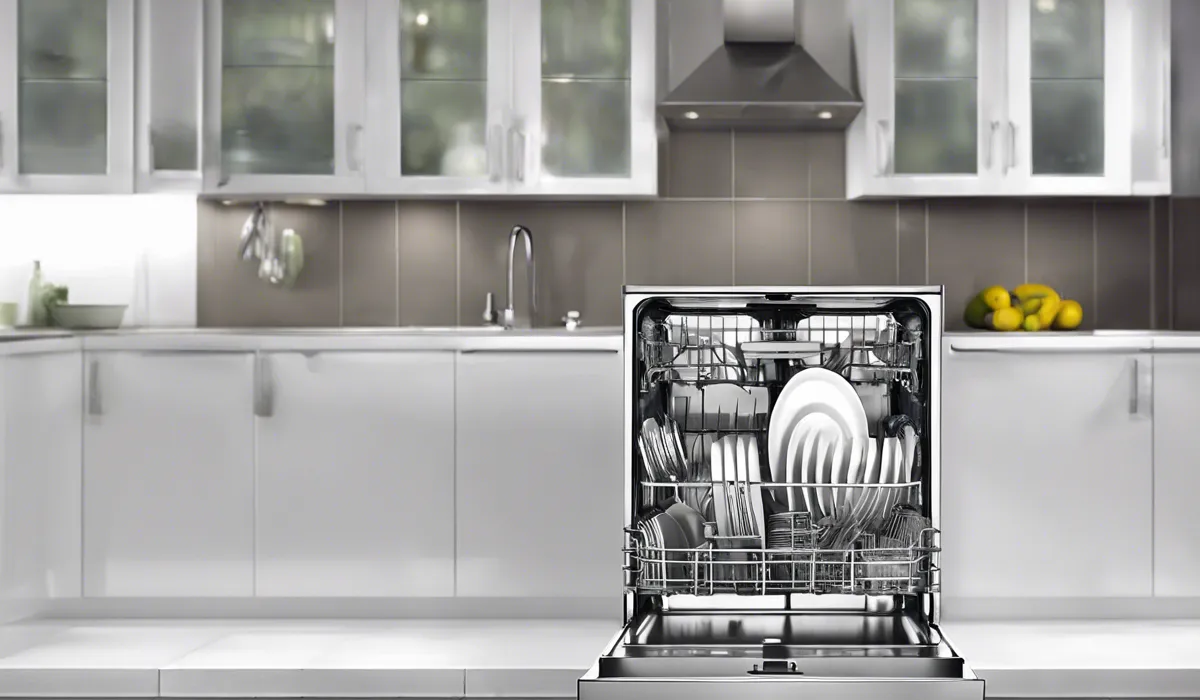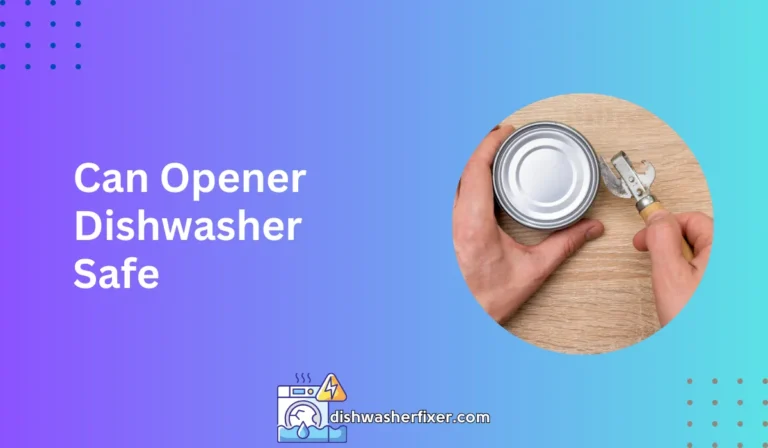How to Be a Good Dishwasher: Sparkle Like a Pro!
To be a good dishwasher, efficiently stack dishes, pre-rinse when necessary, and use hot water with quality detergent. Regularly clean the dishwasher’s filter and seals, and unload from bottom to top to prevent drips on clean items.
Understanding Dishwashing Basics

Reading and Following Dish Soap Instructions
To start off on the right foot, always read the instructions on your dish soap. Different soaps have different concentrations and are meant for various uses.
Some might be tough on grease, while others are gentle for delicate dishes. By following the label, you ensure that you’re using the soap as effectively as possible, which can save you time and money in the long run.
The Art of Pre-rinsing
Not every dish requires pre-rinsing, but for those that do, it can make a massive difference in your washing efficiency.
Pre-rinsing removes loose food particles and helps your soap work better on the tougher grime. It’s a step that can save you scrubbing time later.
Sorting Your Battlefield
Dishes should be sorted not just by type but by how dirty they are. This practice prevents you from having to change your dishwater too frequently and helps avoid transferring heavy grease or food residues onto less soiled items.
Maximizing Space
Whether you’re stacking dishes in a dishwasher or organizing them in a sink, effective use of space is crucial. Stack similar items together and make sure that all surfaces are exposed to the water and soap to ensure a thorough clean.
Washing Order and Techniques
Start with the least soiled items like glasses and end with pots and pans. This order prevents dirtier items from soiling the water too quickly. Use gentle motions for delicate items and more vigorous scrubbing for resilient cookware.
Hot Water: The Grease Fighter
Hot water is better at breaking down grease and helps sanitize your dishes. However, too hot can damage some delicate items or cause burns, so find a happy medium that cleans effectively without causing harm.
Delicates Need a Gentle Touch
When washing fragile items, such as wine glasses or fine china, handle them with extra care. Use a soft sponge and be mindful of the pressure you apply to avoid any breakage.
Techniques for Efficient Dishwashing

Soaking Made Simple
For stubborn food residues, a good soak can work wonders. Fill your sink or a basin with hot water and add a dash of dish soap. Let the items sit for a while to loosen up the grime before you begin scrubbing.
Dish Soap Dosage
Using the correct amount of dish soap can mean the difference between sparkling dishes and a soapy mess. A small amount often goes a long way, especially if you have a high-quality detergent.
Scrub Smart, Not Hard
Each dish type has its own cleaning technique. Glassware should be cleaned with a soft sponge to avoid scratches, while pots and pans can handle a more abrasive scrubber. Learn the best approach for each item to make cleaning a breeze.
Dishwasher Benefits
If you have the luxury of a dishwasher, use it! Dishwashers can save water and energy while providing a high level of sanitation. They also save you time that you can spend on other activities.
Hand-Washing Hacks
For those without dishwashers, hand-washing doesn’t have to be a drag. Fill one basin with soapy water for washing and another with clean water for rinsing. This method is not only quick but also conserves water.
Time Management Tricks
Keep an eye on the clock by setting a timer or washing dishes while you’re cooking. This way, you’re making the most of your time and not letting the dishes pile up.
Clean Space, Clean Mind
Maintaining a clean and organized workspace will make dishwashing more pleasant and efficient. Have a place for everything and tidy up as you go.
Maintaining Dishwasher and Dish Health

Dishwasher Upkeep
Regularly cleaning your dishwasher’s filter and seals will keep it running smoothly and your dishes coming out clean. Check your manufacturer’s instructions for specific maintenance tips.
Hard Water Woes
Hard water can leave mineral deposits on your dishes and inside your dishwasher. Use rinse aids or water softeners to combat this issue and keep your dishes spot-free.
Storing Dishes Safely
Proper storage is crucial to avoid chipping and contamination. Stack dishes securely and in a way that allows air to circulate, which helps prevent the growth of bacteria.
Eco-Friendly and Gentle Cleaning
Consider using eco-friendly and skin-sensitive cleaning products. They are better for the environment and gentler on your hands.
Extending the Life of Your Dishes
Good dishwashing habits, like not using too much force or abrasive materials, can help extend the life of your dishes. Treat them with care, and they’ll last for years.
Knowing When to Replace Tools
Sponges and brushes should be replaced regularly to prevent the spread of bacteria. If they start to smell or look worn, it’s time for a new one.
FAQs About Being a Good Dishwasher
How should dishes be stacked in the dishwasher for best results?
For best results, efficiently stack dishes by spacing them apart to allow water and detergent to reach all surfaces, with soiled sides facing the water spray and avoiding nesting or overlap.
Is pre-rinsing dishes always necessary before loading the dishwasher?
Pre-rinsing is necessary when dishes have dried-on or baked-on food, but it can be skipped for lightly soiled items where the dishwasher’s power is sufficient to clean them effectively.
What type of water and detergent should be used in a dishwasher?
Use hot water for optimal cleaning and dissolving grease, paired with a high-quality detergent designed for automatic dishwashers.
How often should the dishwasher’s filter and seals be cleaned?
Clean the dishwasher’s filter and seals regularly, at least once a month, to maintain optimal performance and hygiene.
What is the proper way to unload a dishwasher?
Unload the dishwasher from the bottom rack to the top to prevent water from dripping onto clean items below.
Final Thoughts
Being a good dishwasher involves efficient dish stacking, pre-rinsing when needed, and using hot water with a quality detergent.
Maintenance is crucial; regularly clean the filters and seals of the dishwasher. Lastly, when unloading, start from the bottom to avoid dripping on clean items, ensuring spotless results.





